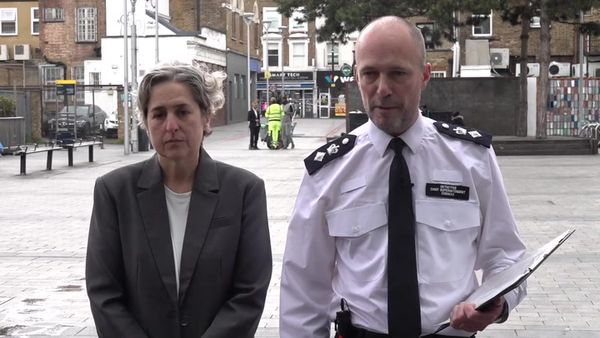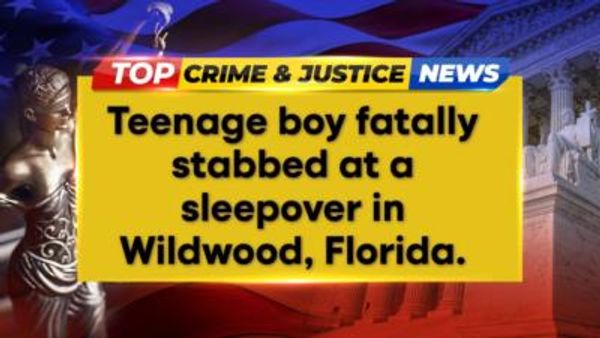
A complaint against Creative New Zealand funding is upheld
You don't want to make Paula Morris angry. The award-winning novelist and tireless advocate for New Zealand writing was really not amused earlier this year when Creative New Zealand rejected her funding application on behalf of the Academy of New Zealand Literature. She demanded to see how the assessors had marked her application. She then laid a complaint, and was allowed the opportunity to reapply; and on Friday, the application for $17,000 was approved. She took to the Twitter machine to proclaim the decision along with the kind of withering and provocative remark that pretty much no other writer in the country would dare to make in public. This called for an interview, conducted over email on Sunday evening.
You wrote on the Twitter machine, “Glad that ANZL has funding again after the biased, ignorant assessing last time. BTW my complaint was upheld.” This is a very interesting approach. Is it a kind of trial by Twitter, in which you judge the assessors guilty of sheer stupidity?
I've been a CNZ assessor myself, and know we're required to give "generous, comprehensive feedback", as well as understand and apply the assessment criteria well. After the ANZL's application to Creative NZ earlier this year, I asked to see the assessments and scores, and then submitted a detailed complaint. I argued that these comments "revealed bias, reliance on assumptions and a dismaying ignorance of the literature sector", giving specific examples, and asking CNZ to institute more robust training for assessors—including basing assessments on evidence supplied rather than conjecture, unsupported anecdotal evidence, personal feelings or assumptions. CNZ's response, by the way, was to agree that there was some evidence of assumption and bias in the two assessments. Despite our low score in the round in question, the ANZL was able to apply again the next round—a modest request of c$17,000 for reviews, which was funded. Why did you describe your assessors as “biased, ignorant”?
I don't know the names of the two individual assessors, but I hope they're on Twitter, noting my scorn. I have no hard feelings towards CNZ itself: these decisions are made by the external assessors, many of whom—maybe even most—in the Literature category are writers. But I do want CNZ to be more thorough and proactive in managing assessments and assessment panels, rather than let assessors spout crap or give punitive marks without citing evidence to support their decisions.
Backtracking for a second, what actually happens with funding applications?
Each assessor gives four scores and sets of comments: out of 7 for the "idea" part of the application; out of 7 for "viability" (which includes budget, timeline and personnel); "strategic outcome" out of 3; and "programme purpose" out of 3. So if an applicant doesn't list a specific programme purpose from the given list, as I've seen some applications neglect to do, they'll get a zero out of 3—why some applications miss out. (Sometimes I wonder if that's what happened when Sport got turned down for funding and Fergus [Barrowman, publisher at Te Herenga Waka University Press] was complaining in the media about a small mistake in the application.)* There are guidelines for the assessors for awarding particular scores within each range. So, for example, if an assessor writes that all is good with the budget and people, but only awards a 4/7 for viability, that's an issue: it suggests that the assessor is not justified in awarding the lower score, or has not bothered to explain the reasoning.
*Fergus Barrowman issued a clarification on the Twitter machine this morning: "There was no mistake in the Sport application; the CNZ staffer who was the sole assessor didn’t know that bookshops get a trade discount so claimed the budget didn’t add up."
Everyone gets turned down by CNZ, sometimes multiple times – a well-known author took to social media recently to express how exasperating and undermining it is. The complaint process worked for you; what sort of hoops do you have to jump through?
The complaint process was straightforward: ask in writing to read the comments and scores, then submit a letter. In the meantime, in a separate process, I also had helpful discussions with CNZ's literature advisors about how the ANZL could re-submit and frame a new application.
On getting turned down by CNZ: yes, it happens all the time, because there are many applicants and not enough money. My first application to them, to write my second novel, Hibiscus Coast, was turned down. This was after I won the Adam Prize as well as best first book of fiction at the Montana NZ Book Awards for Queen of Beauty. I rang the then-advisor and she said: "Well, you could just be a flash in the pan."
In the same funding round, grants were awarded to other emerging writers who never published the books that were funded. That's the way it goes. Assessors decide based on writing samples and this is always going to be subjective.
What are ANZL’s readership figures? And, why does it deserve CNZ funding?
For organisations like festivals, publishers, lit magazine sites, etc, the decision has to be based on evidence supplied and the argued case. You ask if the ANZL deserves funding, but my concern is: did we present a well-argued case that represented what we do honestly and thoroughly? And then, did the assessors examine all the provided evidence, including references, statistics and examples, and approach it without bias, assumptions or lazy thinking? I have no expectations of success, just of integrity of process. None of us are entitled to funding.
Speaking as a past assessor: my advice to all writers, however established, is to include a writing sample from the project for which you're applying. Without it, you cannot get the marks you'll need to be awarded funding. Also, if you claim anything in your application, like interest from an agent or publisher or film company, then you should include evidence like letters or emails. Speaking as a fellow writer: please do not apply for CNZ funding for a new project when you haven't written or published the last project for which you received funding. And if, like me, you work for a university that pays you 40 per cent of your salary to research and write, don't apply for writing grants unless they're to cover unpaid leave. When I (successfully) applied for funding towards the A Clear Dawn anthology, it was to pay the contributing writers and my co-editor Alison Wong, not to pay myself.
Is there something broken with the CNZ funding model? What are your thoughts on the use of anonymous assessors?
Interesting questions. When I was assessing, I imagined that it was not anonymous, so I could be confident everything I wrote (and said in discussions) could withstand scrutiny. At the University of Auckland, our internal and external examiners at Masters level are anonymous, and this protects assessors, I guess, from unfair denunciations if a student is unhappy with comments or grades—though at PhD level the examiners are named. All literary scenes everywhere are small and petty, so perhaps CNZ wouldn't be able to find assessors if the process wasn't anonymous: there would be too much revenge. However, anonymity demands the assessors are scrupulously fair and thorough, not just talking crap (see above).
As well as ANZL being given money in this latest funding round, Kete got $75,000, and ReadingRoom was awarded the same figure earlier this year. There’s other spending, too, on the review / media infrastructure of NZ writing. Isn’t it getting out of hand? Actual authors – the people who create books – are being overlooked in favour of review sites (Metro is right now advertising for an arts editor, to be paid for by CNZ; I gather the salary is about $80,000!) and various assorted quangos (eg that quangocentric void, The Coalition for Books) that talk about the people who create books. Where will it all end for God's sake?
Hmm. CNZ supports the whole literature sector, not just writers. After we've written our books, we need them to be published and reviewed; we would like to appear at festivals and other events, and be interviewed and discussed in features. I feel that more organisations and publishers should be Kahikatea clients of CNZ, i.e. part of a separate multi-year funding programme, rather than having to scrap it out with writers and smaller initiatives in the funding rounds. For example, Otago, Te Herenga Waka and Auckland University Presses are all Kahikatea clients, but Massey University Press isn't. The Pantograph Punch is funded as a Kahikatea organisation in literature, though their literature coverage is minimal compared with ReadingRoom, Kete or the ANZL, all of which have to apply in general funding rounds. Word Christchurch is in the Kahikatea programme but Verb Wellington is not.
There's only one literature organisation in CNZ's Totara list of 23 clients, the Māori Literature Trust, getting over $100,000 a year. (Toi Māori, which funds the Te Ha Māori writers network, among many other things in other art forms, is also a Totara client, getting c.$800,000 a year at the moment.)
Maybe that whole Kahikatea/Totara programme needs to be re-assessed by art form. In literature, if all organisations and publishers were moved into a separate funding pool, allowing longer-term planning and budgeting, it would make more sense. Otherwise an individual writer may be up against, say, Lit Crawl in Wellington, National Poetry Day and the Cuba Press in any given funding round. Those organisations may present comprehensive, well-argued cases and be awarded well-deserved funding. But it means there's less for other literature applicants, especially writers whose work sample may appeal to one assessor but not to another.
Finally - in an adjacent issue to funding, The Big Idea ran an interesting story last week about senior people leaving arts organisations, such as CNZ senior manager Cath Cardiff, a veteran of 22 years. Do you have concerns about this?
People leave jobs all the time: perhaps others should be moving on as well. We need fresh challenges or to re-think our lives, and organisations need fresh perspectives.
Of course, I'd love to be Queen for a Day at CNZ, but they probably think I'm too complain-y.
The Academy of New Zealand Literature publishes reviews, interviews, and other stories about New Zealand books. It has over 100 members and a restricted elite of 15 Fellows, of elderly writers "with an important body of work and distinguished career": Fleur Adcock, Marilyn Duckworth, Alan Duff, Fiona Farrell, Maurice Gee, Witi Ihimaera, Kevin Ireland, Lloyd Jones, Dame Fiona Kidman, Owen Marshall, Vincent O'Sullivan, Elizabeth Smither, CK Stead and Albert Wendt.







